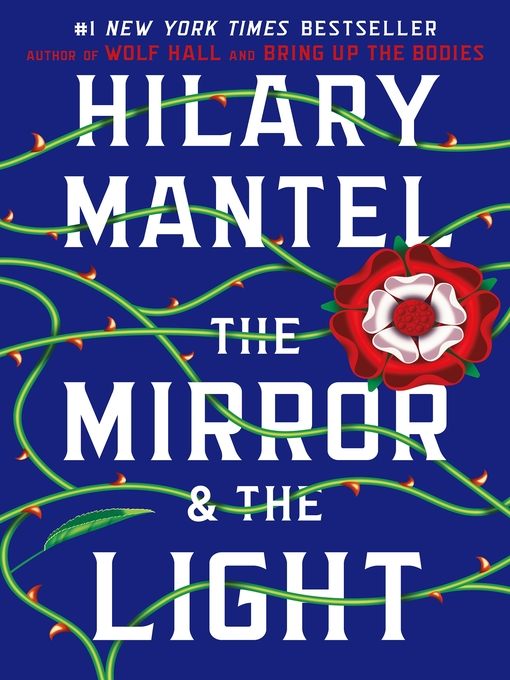
The Mirror & the Light
Wolf Hall Trilogy, Book 3
- اطلاعات
- نقد و بررسی
- دیدگاه کاربران
نقد و بررسی

This book will be published on March 10, 2020, and the publisher won't be sending out review copies until that time. Please check back for our review.
COPYRIGHT(2020) Kirkus Reviews, ALL RIGHTS RESERVED. (Online Review)

March 16, 2020
In Mantel's magisterial conclusion to the Wolf Hall trilogy, Henry VIII's fixer, Thomas Cromwell, is everywhere. Born poor, Cromwell has risen to Viceregent, Privy Seal, and Baron, with more than a fair share of blood on his hands. The story picks up where Bring Up the Bodies left off, with Cromwell, now in his 50s, witnessing the execution of Anne Boleyn. Cromwell reconciles the king to his stubbornly Catholic daughter, supervises the printing of the English Bible, and arranges the king's marriage to Anne of Cleves. Meanwhile, Cromwell reflects on his crimes and remembers his impoverished youth ("we yearn for our origins; we yearn for an innocent terrain"). In Henry's court, everyone has a grudge; key issues, whether religious, personal, or political, are decided according to who has the king's ear; and disagreement is easily framed as treason. Mantel's craft shines at the sentence level and in a deep exploration of her themes: Henry sees himself as "the mirror and light" to all other princes, but Cromwell is Henry's secret mirror, the record of the king's weaknesses and compromises. Cromwell keeps turning wreckage into building materials, until, that is, the wreckage is his. The series' first two books won the Booker Prize—the third, rich with memory and metaphor—may be even better.

Starred review from March 15, 2020
At 50, Thomas Cromwell is the second man in England, serving dangerously tempestuous Henry VIII, and his chief duty (it seems just now) is to get the king new wives and dispose of the old. A responsibility that will catalyze his violent undoing. Mantel has imagined Cromwell's life in ways never before conceived in her resoundingly popular Wolf Hall (2009) and Bring Up the Bodies (2012), each a Man Booker winner. The longed-for final volume in Mantel's magnificent trilogy is also a stupendously knowledgeable, empathic, witty, harrowing, and provocative novel of power and its distortions. Anne Boleyn, Henry VIII's second wife, has just been beheaded, yet, desperate for a male heir, he insists on immediately marrying Jane Seymour, who subsequently dies after giving birth to Edward VI. Cromwell has many fires to stamp out, especially since Henry's annulment of his first marriage ignited a fierce battle between Catholics and Protestants. Commoner Cromwell, a disciplined and inexhaustible master of the art of coercion, is finally elevated to Lord, but he is increasingly besieged as Anne Cleves becomes Henry's fourth queen. Astute, strategic, sly, funny, poignant, and doomed, Cromwell rules these vivid pages, yet every character and setting resonates, and Mantel's virtuoso, jousting dialogue is exhilarating. Gossip, insults, bribes, lies, threats, jealousy, revenge, all propel this delectably shrewd and transfixing Tudor tragedy, this timeless saga of the burden of rule, social treacheries, and the catastrophic cost of indulging a raving despot.HIGH-DEMAND BACKSTORY: Cromwell fever is again running high; multiple copies of Mantel's finale are in order, and it's wise to check the shelves for her two previous Tudor masterpieces.(Reprinted with permission of Booklist, copyright 2020, American Library Association.)

March 13, 2020
The finale of Mantel's extraordinary trilogy comes eight years after Bring Up the Bodies, at the end of which Anne Boleyn, second wife of Henry VIII, is beheaded, accused on tainted evidence of adultery. This book starts with Henry's chief minister and fixer, Thomas Cromwell, walking away from the execution. He'd done what the king needed but regrets doing it. Henry has long grown out of his youthful promise into a monster of ego, and it's getting harder to please this fickle, guilt-ridden sovereign. Cromwell negotiates his way past two more queens for Henry--Jane Seymour, who dies in childbirth, and Anne of Cleves, rejected by Henry in the marriage bed. All the time, the wolves gather. Eventually, innuendo and cooked-up evidence brings down the hated minister. This is a tale of ghosts as well as live men: Cromwell mentally relives his past as he heads, ineluctably, toward his fall. Readers may be put off by the denseness of the book's prose, but that's its power: the details of living in a far-past time surround and enrich the narrative. VERDICT Mantel has no equal in historical fiction at setting a scene, telling a compelling story, and delineating vibrant characters. Libraries won't be able to keep this book on the shelves. [See "Seasonal Selections," LJ 2/20.]--David Keymer, Cleveland
Copyright 2020 Library Journal, LLC Used with permission.

October 1, 2019
In this wrap-up to Mantel's trilogy on the life of Thomas Cromwell, begun with the Booker Prize winners Wolf Hall and Bring Up the Bodies, Anne Boleyn has been separated from her head, and the blacksmith's son from Putney is sitting pretty. But not for long: rebels rouse in England, traitors scheme abroad, invasion remains a constant threat, and Henry VIII's third wife dies delivering his much-wanted son. Henry might demand loyalty, but he's loyal to no one, so Cromwell must watch his back. Obviously, great expectations for this book, its predecessors having have sold five million copies worldwide.
Copyright 2019 Library Journal, LLC Used with permission.




دیدگاه کاربران